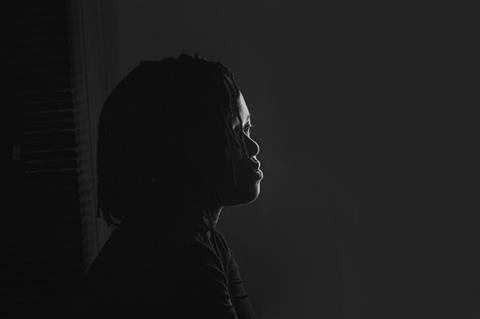Misty Reshun shares her journey through unimaginable loss after the death of her son, Derrion.

Grief doesn’t ask permission before it arrives. It just comes — loud, unrelenting, and life-altering. When I lost my son Derrion, my entire world collapsed, and so did the neat little box I had put God in.
I had prayed hard for my son, not just for his safety, but for his healing. He struggled with addiction, and like many mothers, I spent years standing in the gap for him. I believed in a breakthrough. I believed in restoration. And then, suddenly, I was planning a funeral.
My prayers hadn’t been answered the way I hoped, and I didn’t know what to do with a God who allowed this. I wasn’t angry as much as I was heartbroken, confused about how to continue in faith when faith hadn’t protected me from this level of pain.
READ MORE: How grief can change a Christian marriage
For a while, I said all the “right” things out loud, but in private, I wrestled. I wasn’t sure if I could trust God the same way. I kept asking the question many grieving parents silently carry: If God loved me, why didn’t he stop this?
In time, I learned that God wasn’t offended by my questions.
In time, I learned that God wasn’t offended by my questions. He met me in them. Grief didn’t destroy my faith. It dismantled it — so God could rebuild it.
READ MORE: Grief and the Gospel: learning from the Japanese concept of wabi-sabi this Easter
Instead of the version of faith that demanded certainty, I found room for lament, for silence, for not having the answers. I stopped pretending that worship always had to sound like praise. Sometimes, it was just sitting in the quiet and letting my tears be my prayer.
I stopped measuring God’s goodness by how much pain he prevented.
I stopped measuring God’s goodness by how much pain he prevented. Instead, I started paying attention to how he was present in the pain itself — in the friends who showed up without needing to fix me, in the verses I didn’t even know I remembered, in the stillness of nights when I should’ve fallen apart but somehow didn’t. And most importantly, I started writing.
Mothering without a mother: finding strength in God through grief
What began as journal entries turned into letters, prayers, affirmations, and eventually a book. Sunflowers and Silence: Reflections from the Valley became a space for me to process my grief and rebuild my relationship with God, not on the foundation of performance or religious routine, but on honesty and spiritual intimacy. Grief taught me to stop rushing to make meaning out of suffering and instead be with God in the questions. My spiritual tools weren’t fancy — a blank page, a pen, and a whispered, “Lord, help me make it through this moment.” That was often enough.
If you’re reading this and you’re grieving, please know this: you’re not broken because you’re struggling to pray. You’re not faithless because you’re asking why. You’re human. And God isn’t afraid of your humanity. In fact, the valley is where I learned God’s love wasn’t transactional — it was sustaining. He didn’t remove the grief, but He sat with me in it. And day by day, He gave me the courage to live again.
My faith doesn’t look like it used to. It’s quieter. Simpler. But it’s real. And it’s mine.


































No comments yet